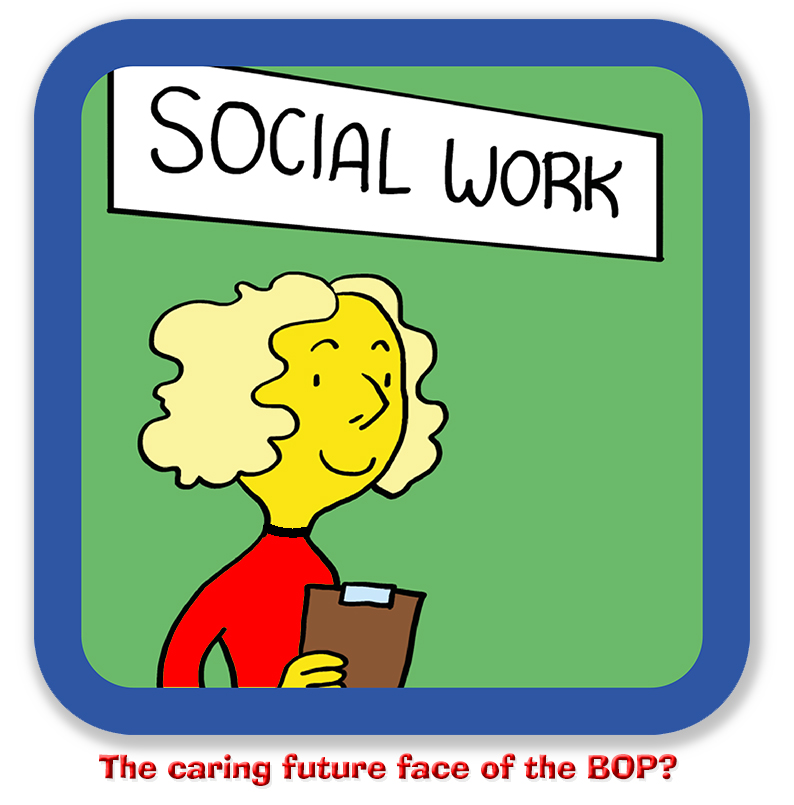We post news and comment on federal criminal justice issues, focused primarily on trial and post-conviction matters, legislative initiatives, and sentencing issues.

HOW BIDEN CAN REFORM CRIMINAL JUSTICE
Sometimes, it’s hard to remember the three things my wife wants me to pick up at the local IGA. For that reason, I have empathy for our septuagenarian President trying to wrap his head around the 14 steps that law professors Mark Osler (a clemency expert) and Rachel Barkow (former Sentencing Commission member) proposed last week that he take to reform criminal justice.
 Writing in The Appeal, the profs argued (among other things) that “Biden inherits a clemency crisis. There are currently more than 15,000 petitions waiting for an answer, having piled up over the course of the Trump presidency… The current structure bears not one but two fatal flaws: It is overly bureaucratic and is a captive of the deeply conflicted DOJ.” It’s no secret that the fox has been guarding the henhouse – too much of clemency decision-making is embedded in the Department of Justice, the very institution that sought the too-long sentences in the first place and is thus inclined to say no to requests to overturn its initial judgments.
Writing in The Appeal, the profs argued (among other things) that “Biden inherits a clemency crisis. There are currently more than 15,000 petitions waiting for an answer, having piled up over the course of the Trump presidency… The current structure bears not one but two fatal flaws: It is overly bureaucratic and is a captive of the deeply conflicted DOJ.” It’s no secret that the fox has been guarding the henhouse – too much of clemency decision-making is embedded in the Department of Justice, the very institution that sought the too-long sentences in the first place and is thus inclined to say no to requests to overturn its initial judgments.
They also called on Biden to reform how the BOP processes sentence reduction motions filed pursuant to 18 USC § 3582(c)(1)(A)(i), the so-called compassionate release motions. “DOJ needs to shift course,” Barkow and Osler said, “particularly during the pandemic. It should identify elderly and infirm people in prison for release — not merely home confinement — and, at a minimum, it should support their release when requested.”
In addition, they argued the Administration should make CARES Act home confinement permanent for those who have been sent there during the pandemic, and that the DOJ commit to programming that allows people in prison to earn time off their sentence after participating in programming. “During the Trump Administration,” they said, “BOP proposed a rule that would block reduction eligibility for far too many people, make it too difficult to earn credits, and far too easy to lose them. While public comment on that proposal closed on January 25, it is not too late for DOJ to shift course and propose a different rule that makes this programming—and therefore release eligibility—as widely available as possible.”
 Most significantly, they argued that “flawed compassionate release and First Step Act implementation are emblematic of larger problems at the BOP. Nearly everyone outside of government who deals with the BOP finds it to be dysfunctional; it’s inefficient, overly bureaucratic, and prone to cruelty.” They propose legislation to shift the BOP to the Department of Health and Human Services. “In the end, the work of the BOP is to not only securely detain people but to prepare them for life after incarceration. They are much better at the first task than the second. A shift to a department dominated by social work would help change the culture that produces the BOP’s current problems.”
Most significantly, they argued that “flawed compassionate release and First Step Act implementation are emblematic of larger problems at the BOP. Nearly everyone outside of government who deals with the BOP finds it to be dysfunctional; it’s inefficient, overly bureaucratic, and prone to cruelty.” They propose legislation to shift the BOP to the Department of Health and Human Services. “In the end, the work of the BOP is to not only securely detain people but to prepare them for life after incarceration. They are much better at the first task than the second. A shift to a department dominated by social work would help change the culture that produces the BOP’s current problems.”
Along with that, they argued, the BOP needs to do a better job of the basic “blocking and tackling in their field, and that starts with ensuring adequate staffing throughout the system. There needs to be additional resources for mental health needs, and even for basic issues like ensuring there is a state ID for every person in prison when they are released.”
The Appeal, 14 Steps Biden’s DOJ Can Take Now to Reform America’s Criminal Legal System (March 15, 2021)
– Thomas L. Root

